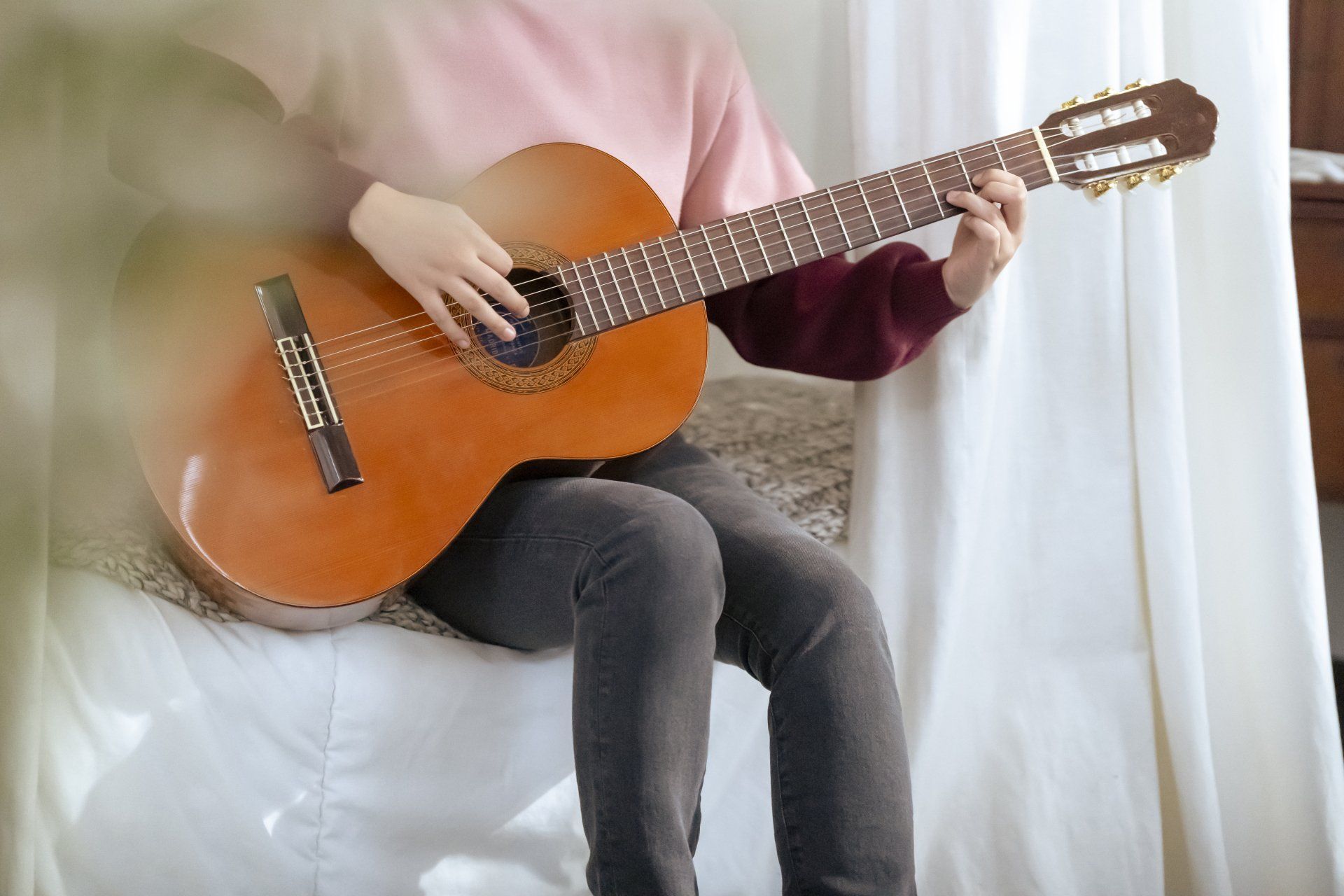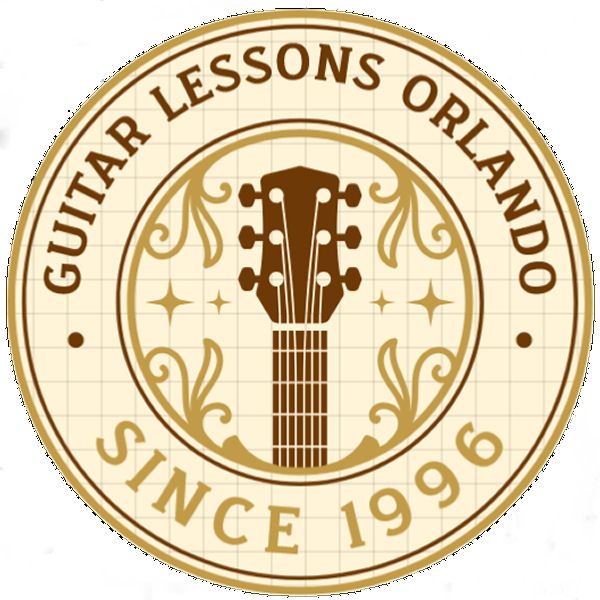How to become a better guitarist.
April 24, 2022
Building your Chord Vocabulary

Nothing comes for free when you decide that you want to do something well. Becoming a good guitar player follows the same logic. One of the first lessons you should do is to learn the basic chords on the guitar. Some call them "cowboy" chords or "open string" chords. Well, what's a chord? Depending on who you talk with, a chord can be any two or three different notes played together. For example, the piano and the guitar are both rhythm and melody instruments. You can play any two or three notes anywhere on a piano, and they will have a named structure. The same concept is true for the guitar. However, some notes played together sound better than others. Chords come from notes that come from specific keys. A key is a group of seven notes played in a scale. Choosing notes in a scale, determines the name of the chord.
The basic chords on guitar (and the piano) are called "major" and "minor". Each chord can also add other notes like sevenths, which give the chord a more appealing sound. For example, if I say the name of the chord is "G", that means it is a "G major" chord. If I say "G7", this means an additional note is added to the original G chord, giving it a new name, "G7". There are many variations and structures to build chords on the guitar. Cowboy or Open string chords generally use one or more of the open strings on the guitar in the chord structure. For example, the most common open string "G" chord uses two open 3rd and 4th strings in the chord. If you play the common open string "C" chord, it uses the open 3rd and 1st strings. Open string chords allow beginner guitar players to slowly learn how to play these chords and change them clearly in rhythm. Over time, the hand builds strength and muscle memory for each of the chords. The idea is to learn as many chords as possible by building your chord vocabulary. This vocabulary will grow as you learn how to play songs.
The most common myth about learning how to play the guitar is to learn one song at a time. When you're starting out, this is okay for the first few songs. Once you begin to get used to playing chords and building your chord vocabulary, adding more songs becomes easier. However, it is not necessary to learn a complete song before moving on to another song. It is easier to learn pieces of several songs as a group. This way, each song will teach you something new that you can use to learn other songs that are similar in structure and progression. After you've learned how to play twenty or thirty songs, you will see that you chord vocabulary has increased significantly. You can then use that knowledge to learn tens of thousands of other songs that use the same chords.
Always practice changing your chords clearly in rhythm by playing along with the songs you are learning or by using a metronome or drum machine. Always remember, when you practice with a song, make sure that your guitar is lower in volume than the music source (i.e. stereo, headphones, radio, etc.). You want to be able to hear the song over your guitar while maintaining a balance between both. You are following the song. It is not following you.

I get asked this question, all the time. The answer is quite simple. If you have fifteen minutes or a half and hour before you start your day, then pick up your guitar and practice the lesson your instructor gave to you for the week. Ask yourself, "How long is my guitar lesson each week?" You should practice your guitar everyday for the same amount of time as your lesson. If you have a one-hour lesson each week, those other six days should be thought of as lessons you initiate yourself. I also get asked why it's called practicing instead of playing. Playing is what you know, practicing is what you don't know. I know that life happens, and it's difficult to find time during the day to commit to practicing your guitar. You should always keep in mind the reason you decided to take guitar lessons in the first place. What was your original motivation to buy a guitar? Practicing or not practicing both require a conscious choice that you can make every day. Perhaps the time you spend watching your favorite TV shows, could be instead used to practice your guitar. Maybe, instead of spending four hours each night, playing online gaming, you could maybe take one of those hours to work on your guitar lessons. Some of the best practicing you can do is with another instrumentalist. Find a friend who plays piano or the harmonica. Playing songs with other people is some of the best ways to truly practice to get better on your guitar. I tell my students to record their practice on their phone so they can hear it later. This way, you have something to listen to, to compare your progress over time. One of the biggest myths about practicing and learning how to play your guitar, is that you should only practice one song at a time until you can play the song all the way through without any mistakes. Nothing could be further from the truth. Instead of one song at a time, you should be working on a dozen or more songs. Practice each song, piece by piece, section by section until you begin to see improvement in all of the songs as a group. Nobody ever became a good instrumentalist by not doing the work and putting in the time. You must commit to the time it takes to get better. Most students who practice everyday, begin to see the fruition in their efforts and hard work pay off in only a few weeks. Commit to your lessons and you will eventually see just how good you can actually play your guitar.

